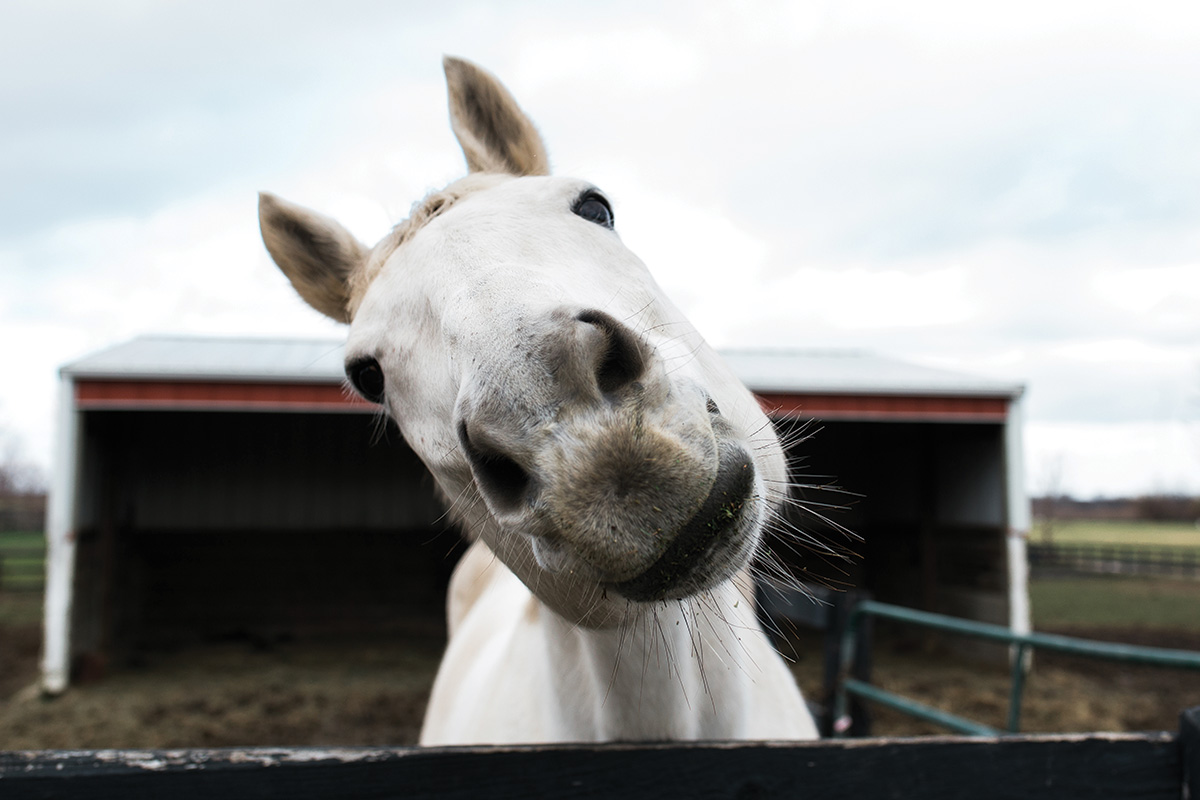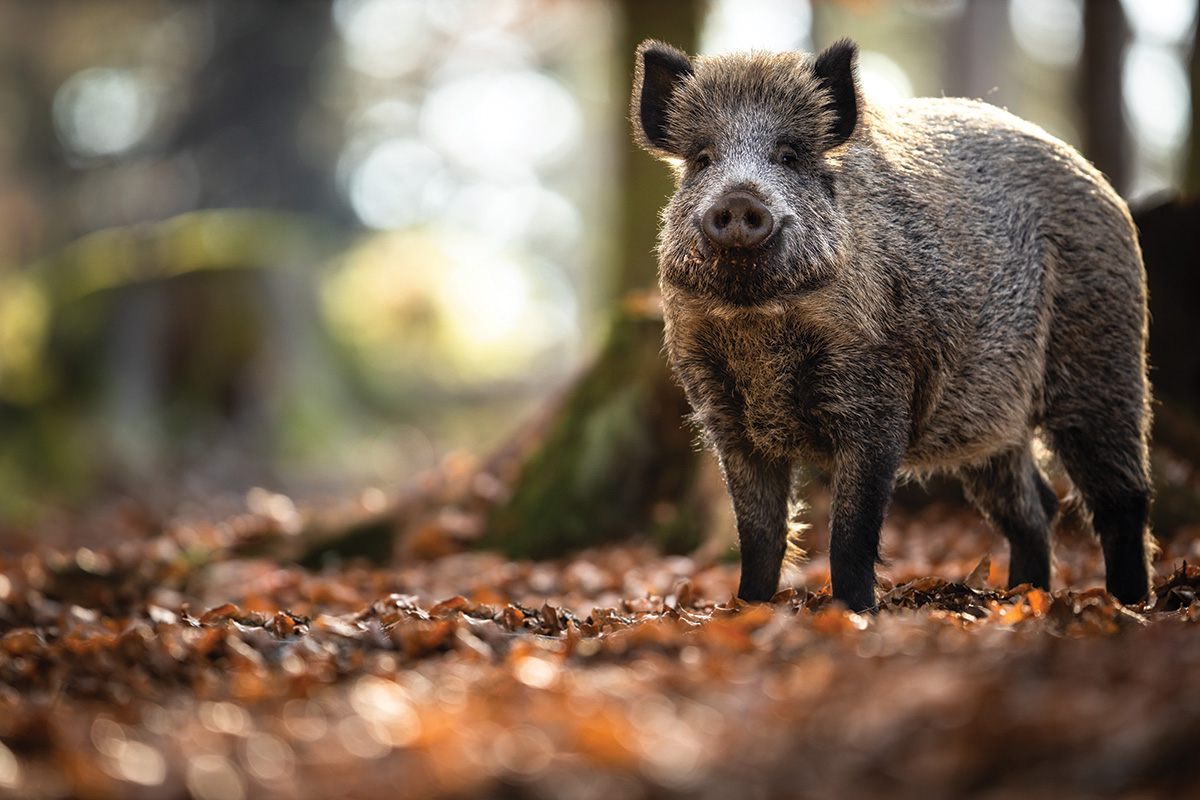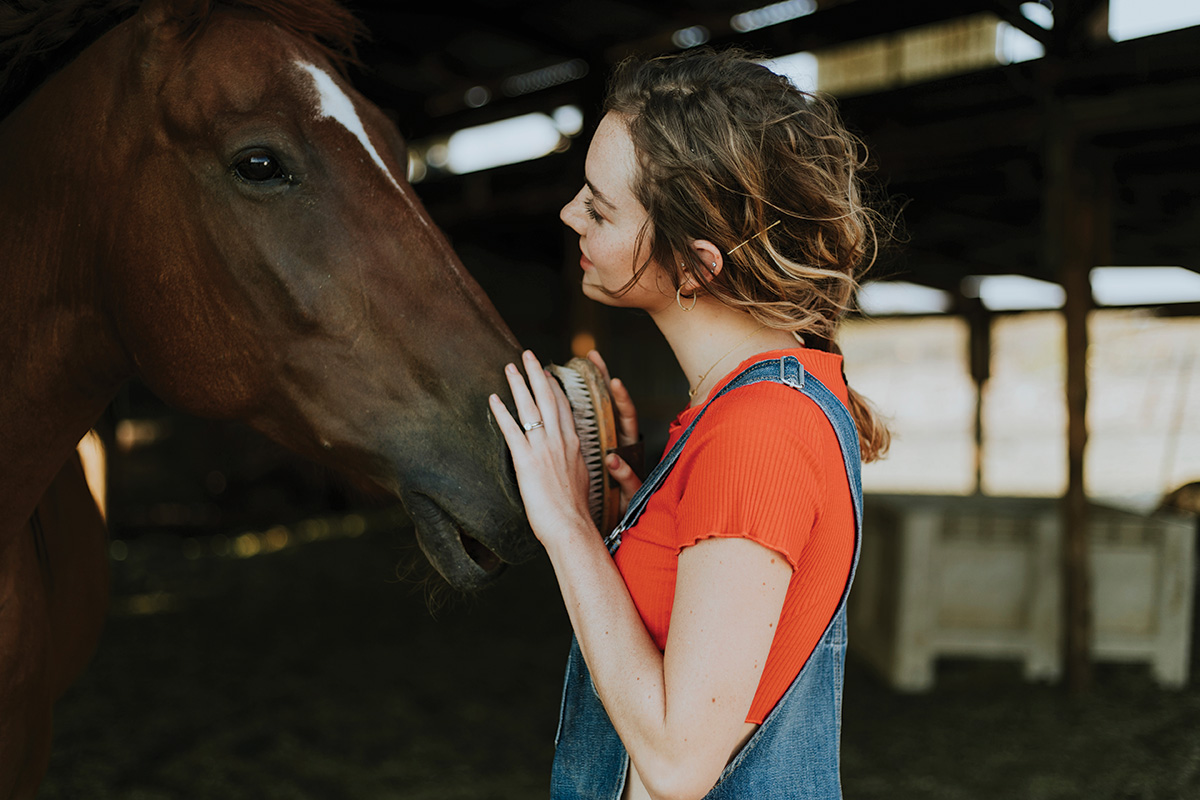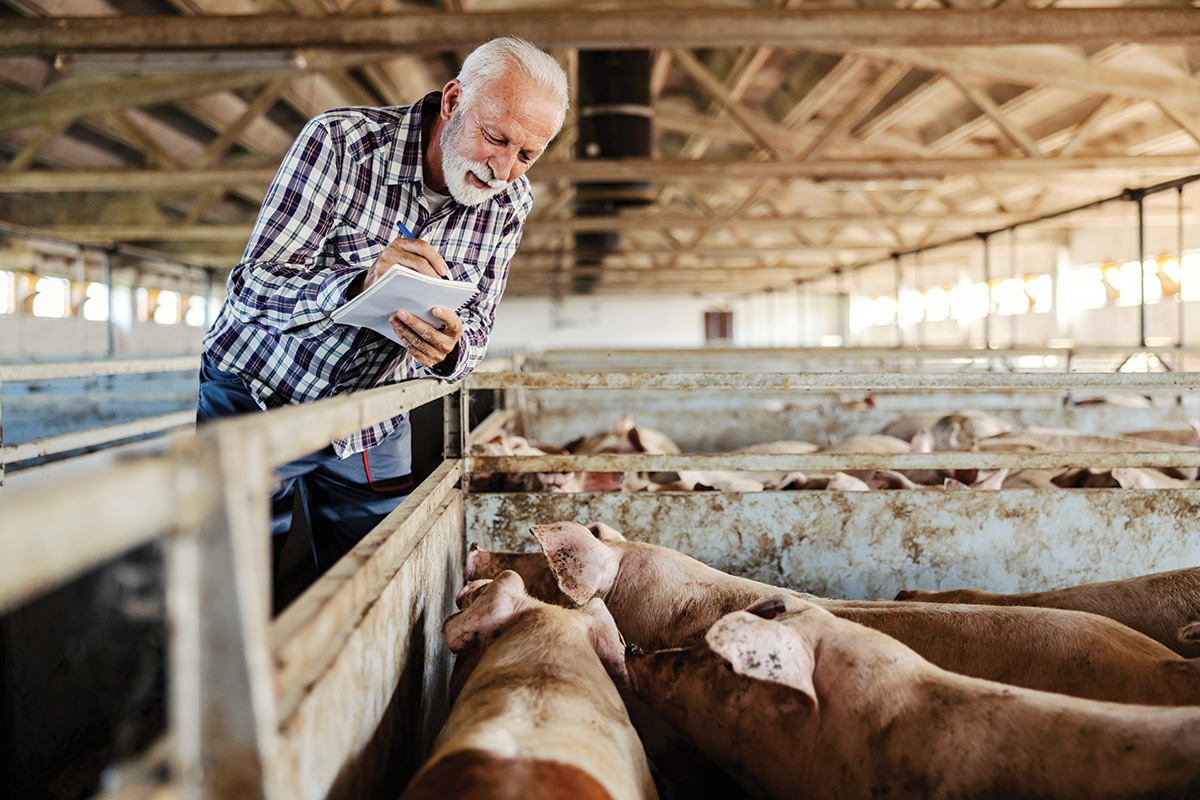Emotions play a crucial role in social species, helping regulate interactions. In animals, emotions can be assessed based on physiological, behavioral, and cognitive changes. In a study published in BMC Biology, scientists from the University of Copenhagen and ETH Zurich set out to find how animals react emotionally to positive and negative sounds made by both humans and members of their own species. Their discoveries, particularly in regards to how we speak to animals, were quite interesting.

Photo by Laurie/Adobe Stock
How the Study Worked
Using hidden speakers, the researchers played recordings of animal sounds and human voices talking gibberish to four species: domestic horses (Equus caballus), Przewalski’s horses (Equus przewalskii), domestic pigs (Sus scrofa domestica), and wild boars (Sus scrofa).
The study tested 12 pairs of domestic horses from 14 different breeds and 12 pairs of domestic pigs of the same breed in Switzerland, along with 12 groups of Przewalski’s horses and 10 groups of wild boars in various wildlife parks throughout France and Switzerland.

Ten groups of wild boars in wilderness areas were studied to compare with domesticated pigs. Photo by lightpoet/Adobe Stock
To prevent domesticated animals from reacting to specific words they had previously learned, the researchers hired professional voice actors to mimic positive and negative emotions by talking in a nonsensical way.
They would first play positively charged sounds (two to six sounds, depending on the species and the sound duration), pause for 1 minute, and then play negatively charged ones, or vice versa (in a random order).
Two important measurements of the animals’ reactions were valence (ranging from negative to positive) and arousal (ranging from calm to excited levels).
All sounds were played at the same intensity, ensuring that the differences were only in terms of species, valence, and the order of valence (positive or negative sounds played first).
To determine whether the animals had the ability to distinguish between positive and negative sounds, researchers recorded their behavioral reactions, including ear position and body movement.
How We Speak to Horses
Their results showed that both horse species had a stronger reaction to negative sounds than to positive ones; domestic horses would respond faster, and Przewalski’s horses would spend more time walking and less time standing. Such reactions were the same, regardless of the playbacks produced by their species, closely related species, or humans.

Approaching horses in a positive and friendly way makes them less reactive and more calm and relaxed. Photo by Rawpixel.com/Adobe Stock
Speaking to Pigs
Pigs, just like domestic and Przewalski’s horses, could tell the difference between positive and negative sounds from their own kind, closely related species, and humans. However, wild boars reacted more to positive and negative pig calls than to human voices or calls from other wild boars.

Domestic pigs were able to tell the difference between positive and negative sounds from their own kind, wild boars, and humans. Photo by dusanpetkovic1/Adobe Stock
Although all four species reacted less and were less attentive when human voices were played compared to calls of their species, they still showed some response. This might suggest that horses have some ability to distinguish whether you are talking positively or negatively to them.
The findings here also indicate that the evolutionary history and domestication of animals may have influenced their ability to understand and respond to emotions.
A Similar Study
This study ties well with another one from 2019, which showed that horses associate individual human voices with previous experiences they’ve had with them.
For example, when hearing voices they had positive previous experiences with, horses would react with increased attention and indicate a positive emotional state (hold their ears forward; their left brain hemisphere would get activated).
When they heard voices associated with previous negative experiences, horses would react negatively (hold their ears backward; their right hemisphere would get activated).
Such reactions are the result of the way horse brains work. Using the left eye and left ear activates the right brain hemisphere, which is responsible for processing sounds expressing negative emotions (like sadness or fear). Similarly, horses will use their right eye and activate the left hemisphere to process vocalizations expressing positive emotions (for example, happiness).
This research not only showed that horses can recognize different human voices, but can also remember the valence of past experiences with these voices. So, when they hear a human voice, their reaction is also influenced by the valence (positive or negative) of their prior interactions with that person.
The Takeaways
Both of these studies show that positive interactions with horses create positive expectations and a favorable attitude in animals. In contrast, negative experiences result in negative emotional states, and horses become less willing to interact.
If you approach and speak to animals in a more positive, friendly way, they should react less and become calmer and more relaxed around you.
This, of course, should be everyday practice, but these studies still provide an intriguing insight into the emotional intelligence of horses and gives interesting perspectives on communication between humans and animals that affects their welfare.
This article about how we speak to animals appeared in the May 2024 issue of Horse Illustrated magazine. Click here to subscribe!



